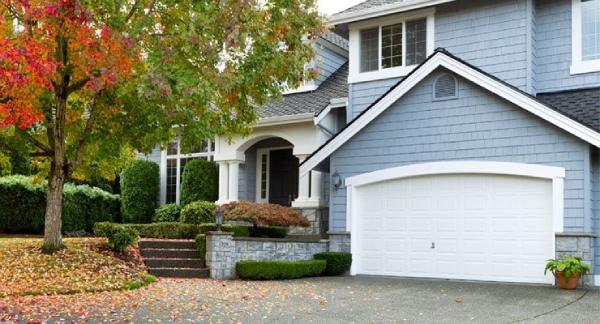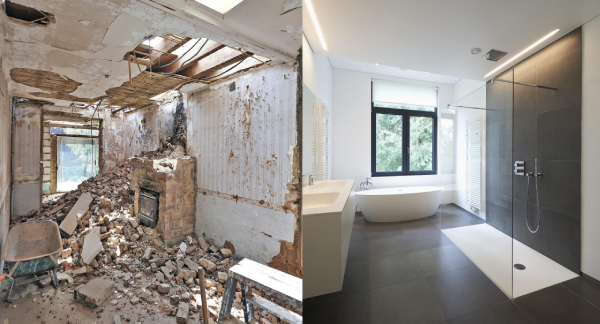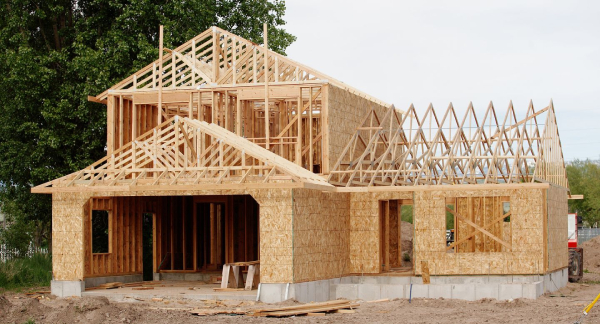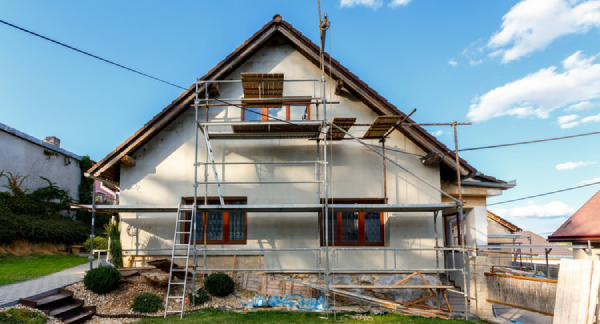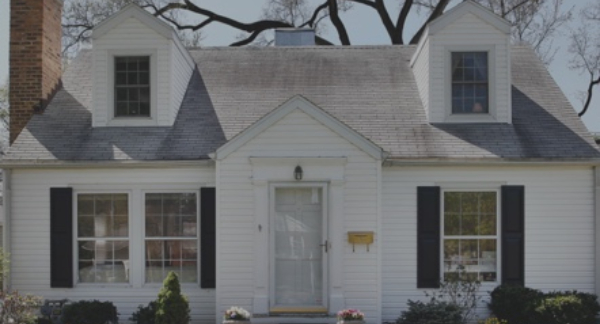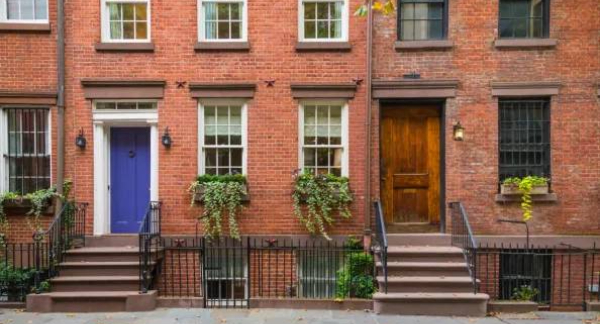Hard money loans are undeniably a sound way for investors to gain the necessary financing to acquire new properties. This type of loan provides an alternative funding option that traditional banks don’t offer. Learning about the normal rate for hard money loans is essential for real estate investors.
One of the first things real estate investors want to learn more about is hard money loan interest rates. Many people worry about higher interest rates associated with this type of loan. Private lenders understand the importance of breaking down everything about interest percentages so you can decide if hard money is right for your investment needs.
What Are the Average Hard Money Lender Rates?
What is the average interest rate on a hard money loan? Although lending organizations and private investors have different hard money loan requirements, high interest rates are fairly common on short-term loans, ranging between 7.5% to 15%. It’s important to remember that hard money loan terms are much shorter than a traditional loan or conventional loan from a bank.
There are also points for hard money loans. A lender may charge these points to cover administrative costs, and one point equals 1% of the hard money loan. On average, a lending company may charge 3 to 5 points on hard money loans, which would be 3% to 5% of the total loan cost.
What Factors Affect Interest Percentages?
What is the interest rate on a hard money loan? The rate will vary with each loan and lender. Other factors will affect your hard money lender’s interest rate, including the following:
- The location of the home
- The size of the home
- The condition of the home
Is It Possible to Get a Better Rate on This Type of Loan?
As we stated before, hard money lenders’ rates vary. Even though the rates for hard money loans are typically higher than traditional bank loans, it may be possible to reduce the interest rate. The following offers some rate reduction methods when seeking this kind of short-term loan.
Increase the Down Payment
A private hard money lender usually funds a loan based on the loan to value ratio. By increasing your down payment based on the purchase price, you decrease the risk for the lender and prove you are committed to the project and less likely to default on the loan. This effectively lowers the hard money lender interest rate.
Establish a Relationship With the Lender
The more loans you’ve obtained and paid off with a lender, the more trustworthy you appear. Lending companies are more likely to offer reduced lender rates to borrowers they trust. You may even be able to get a rate lower than the average hard money loan interest rate.
Improve Your Credit Score
While some lending companies do not check a borrower’s credit score or financial history, it is sometimes a factor in the approval process. If your personal credit score is high, lending companies will see you as a lesser risk and may offer better hard money loan rates. Months before applying for this type of loan, check your credit score and work towards improvements. A sound credit score and track record will reduce the hard money lenders interest rate.
EXAMPLE LOAN SCENARIOS
Interest Rates and Closing Costs
Understanding closing costs is essential when learning about hard money terms. Other than the monthly interest rate concerns, there are also closing costs to consider. Each of these costs may affect monthly payments. The following offers a breakdown of some of the closing costs you will encounter.
Origination Fee
Origination fees are above and beyond the hard money loan percentage rates. You can also call origination fees points. The origination fee you are charged covers the cost of processing the loan that the lender funds.
Points on this type of loan are typically higher than traditional financing. The lender needs more money to cover its risks and overhead. They are offering you a speedier process, but the convenience comes with a price.
Underwriting Expenses
You will also pay underwriting expenses, in addition to the interest rate for hard money loan and funding. The underwriting fee is also known as the loan doc fee, and this fee covers the costs of drawing up the legal documents associated with the loan.
Doc expenses and underwriting criteria vary greatly among financial institutions and properties. This fee ranges from around $500 to $5,000, based on the purchase price. This fee is a substantial part of the hard money loan fees you will be charged as a part of getting a hard money loan. This amount should be disclosed to you upfront.
Do Hard Money Lenders Require a Down Payment?
While some lending companies offer 100% loans with the best hard loan interest rates, many lenders will require a down payment. The down payment will vary according to your loan and lender. Residential down payments are around 10-20%, while commercial down payments for a commercial property require more money, around 30 to 40%.
What Are Other Costs You May Encounter?
When it comes to hard money rates, you need to know about all the costs involved with hard money loans. The following are some of the additional costs you may encounter.
Extension Fees
This type of loan is a short loan term, meaning lending companies want you to pay it back as soon as possible. Most lending companies want you to pay this loan back in under two years, though the terms vary.
When seeking information on hard money lenders’ interest rates, you also need to know about extension fees. What happens if you can’t pay the loan back within the timeline?
Sometimes, lenders will extend the loan repayment timeline, but they will likely charge you an extension fee for this convenience. Before signing your loan papers, make sure you inquire about how the lender handles the need for an extension. If they offer an extension, do they charge a fee?
Pre-Penalty Fees
Some lenders also charge fees for paying your loan off early. This is especially important to learn because many investors work to pay off their loans as soon as possible to avoid extraneous interest.
You must look at things from the perspective of the lender. If you pay off your loan before the set timeline, you effectively keep them from making a profit off your paid interest.
To ensure borrowers do not pay off their hard money loans too early, lenders may impose a pre-penalty fee to discourage this practice. When you ask about hard money interest rates, make sure you also find out if the lender charges a pre-penalty fee.
What Are the Requirements for Hard Money Loans?
Private lenders are much more lenient than banks because they don’t have stringent requirements. That being said, lenders of all types will always have some requirements. The following are some of the requirements the lender may have.
Down Payment
Not all lenders require down payments, but most have this requirement. While the lender will supply most of the purchase costs, they will expect you to put down some of your own money into the project, so make sure you have an adequate cash flow.
So, how much do hard money lenders charge? This depends on the lender. Lenders expect a down payment from borrowers because this shows the borrower is vested in the project. After all, the lending company is putting up a lot of money for the project and taking on an abundance of the risk. It helps if the borrower shares some degree of risk.
Feasible Deal
All lenders are looking to make a profit, or they would not be able to remain in business. However, you, as the borrower, need to succeed in your efforts also.
Lenders want to ensure that the borrower will not default on their loan and that the deal is profitable.
A lender needs to know that the investment property loan amount and the entire deal are feasible. Present your deal in an organized manner and let the facts speak for themselves. Learn about the hard money loan rates and terms before agreeing to the loan.
MORE EXAMPLE LOAN SCENARIOS
Should You Use This Loan for Real Estate Investments?
As a real estate investor, you know the importance of obtaining fast funding. Without funding, you could miss out on a sweet property deal that slips right through your fingers and into the hands of a rival real estate investor.
These loans are right for many investors, but you will need to survey your options and the potential before deciding. Are you confident the rehab work for the property can be carried out in a timely manner? Is the investment property likely to sell quickly?
You need to know you can act within the timeline of the loan. It is in your best interest to rehab and sell the property as soon as possible. If you sell the property as soon as possible, you can pay off the loan early and avoid dealing with ongoing interest charges.
Hard money loans are not for everyone. Hard money loan rates usually range from 7.5% to 15%. Most investors feel the rate is well worth it because of the fast approval and funding.
You will have to decide if these loans are right for your real estate investment goals. You will need to consider your financing options for each and every project you encounter.
If the real estate property has good potential and is likely to sell for a profit quickly, a hard money loan may be ideal.
Get Pre-Approved for Your Loan Today
You’ve found the perfect project, but the property is well out of your budget. While you have some capital to put down, you need a loan to come up with the remainder of the money.
Unfortunately, the banks are turning down your loan request for investment properties. If this sounds like your situation, we invite you to contact one of our lender partners right away for pre-approval. We are dedicated to helping you understand your hard money options.
A private lender partner will be happy to answer your real estate investing questions right away. A hard money loan may be the perfect answer to your next funding dilemma.
Reach out today with any questions you have and find out if you are a good contender for this loan.


